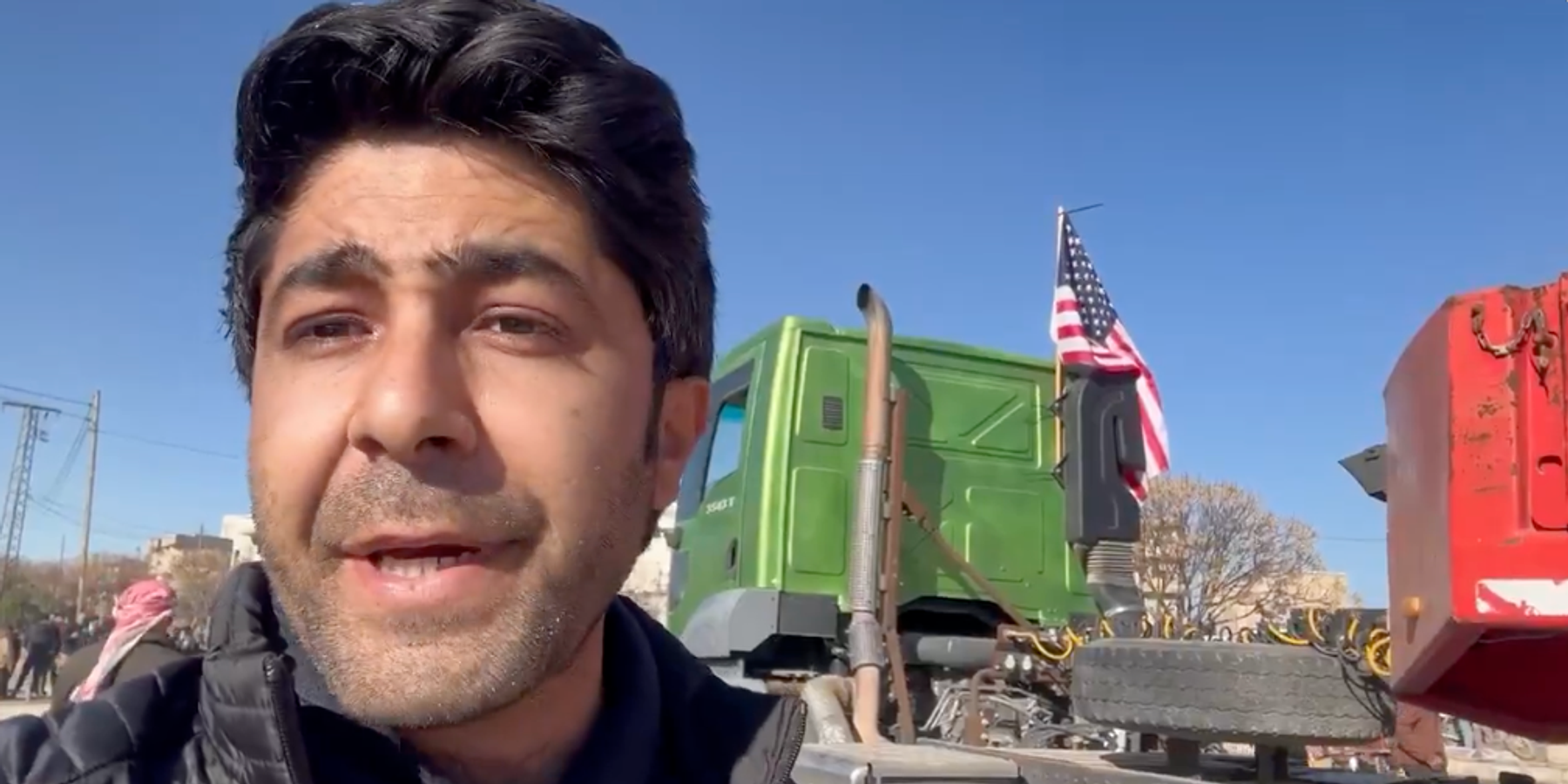The Pentagon addressed questions regarding reports this week about the U.S. military moving construction materials into Kobani, a city in northeastern Syria close to Turkey's border, ostensibly to help its long time partners, the Kurdish-led Syrian Defense Forces, stave off attacks by the Turks.
"We're continuing to work and focus on our mission, which you know why we're in Syria, to ensure the enduring defeat of ISIS. But when it comes to US forces in Kobani, there's no plan or intent right now to set up any base. I'm not sure where those reports are coming from," said Pentagon spokesperson Sabrina Singh.
Unfortunately the follow-ups in the briefing room were weak and didn't ask the next logical question more plainly: if not a "base" is there an outpost or smaller fortification being constructed for the mobilization of U.S. troops and personnel? If video and on-the-ground reports are to be believed, something is going on there.
From Howard Altman at The WarZone:
A half dozen years after abandoning Kobani, U.S. forces are reportedly building a base in this northern Syrian city on the Turkish border that has been riven by strife between Kurdish-led Syrian Democratic Forces (SDF) and Turkish-backed forces. This all comes as a new Syrian government is trying to establish control over the country after ousting Bashar al-Assad.
Several videos and images have emerged on social media claiming to show U.S. troops and equipment heading toward Kobani, reportedly to build a new international coalition base.
Along with videos, he quotes the Syrian Observatory for Human Rights which reported the following on Thursday:
US forces brought in a convoy of 50 trucks carrying cement blocks to SDF-controlled areas in north-eastern Syria.
SOHR activists have reported seeing the convoy on Al-Hasakah-Al-Raqqah highway, while it was heading to Ain Al-Arab area (Kobani) in the eastern countryside of Aleppo. The convoy was accompanied by a military vehicle of SDF.
According to SOHR sources, this comes as a part of US forces’ efforts to boost their bases and establish a new military base in Ain Al-Arab in light of the growing security and military tension in that region.
Yesterday, SOHR sources reported that “International Coalition” forces brought a convoy of logistic reinforcements including premade chambers, surveillance cameras, cement blocks, fuel tanks and digging machineries towards Ain Al-Arab (Kobani).
According to reliable SOHR sources, the digging and drilling will start tomorrow and more military reinforcements such as soldiers, weapons, armoured vehicles, radars and anti-aircraft weapons will be brought.
Altman reports that "the claimed U.S. build-up in Kobani comes as fighting continues between the SDF and Turkish-backed forces in northern Syria" since the fall of Bashar al-Assad's government in early December. "Video emerged on social media claiming the SDF downed a Turkish Bayraktar TB-2 drone over the Qarqozak Bridge, south of Kobani. It is claimed to be the third such shootdown in a month."
"Turkish-backed forces have reportedly escalated attacks on the Tishreen Dam as well as the Qara Quzak Bridge, both key to logistics in the area. Kurdish journalist Rohat Baran emphasized that these sites are not just vital for the local population but also hold broader regional importance in terms of trade, energy, and military operations," Altman wrote.
Meanwhile the U.S. and its coalition partners, which include French forces, have been actively fighting ISIS in central and eastern Syria, he said. There are now 2,000 U.S. military in the country, a number that suddenly increased with no real explanation beyond the 900 that were assumed there just a month ago.
When asked again about whether there are U.S. forces in Kobani, Singh said, according to the transcript, "On your first question on Kobani, I'm not aware of US forces. Again, I've seen those reports and, as Liz had asked me earlier about US forces establishing some type of base or presence in Kobani, I'm not tracking that that is accurate or that we have plans to do so in any way."
So no "presence" in Kobani? Sources who talked with RS mentioned that if the reports of the material rolling into Kobani are accurate, it may mean something other than a "base" is being built by the U.S. military there. The wall segments, for instance, could be erected to house a company or platoon, or bigger. The key is to watch for more videos or reporting about the volume of material being transported to indicate the size and scope of the construction. Singh may be right about there not being "a base" planned, but the U.S. military has a range of installations under different names across the globe housing thousands of troops and military assets. They aren't all called "bases."
RS reached out to the Pentagon press office on Thursday and asked if the military "is sending reinforcements and is building a new facility in Kobani" and if so, were the troop numbers beyond the 2,000 being reported in the country today. We were told they were currently looking into the reports.
- US forces still fighting inside Syria amid power vacuum ›
- US to bring troops home from Iraq, but why not from Syria, too? ›
- Trump: 'We're not involved in Syria, they got their own mess' | Responsible Statecraft ›
- Why are we still at war in Syria? | Responsible Statecraft ›
















